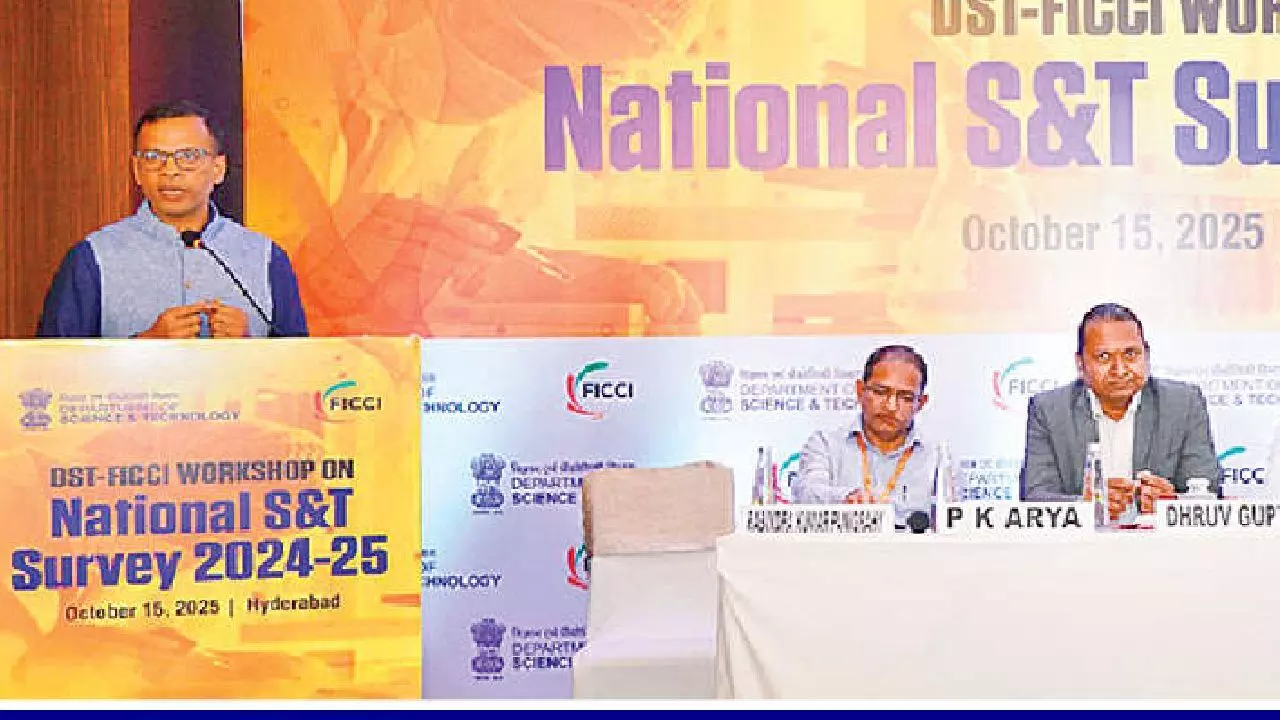DST–FICCI workshop moots greater industry role for policy making
The workshop was attended by senior officials and industry leaders
image for illustrative purpose

Hyderabad: The speakers at the outreach workshop said that enhanced industry participation and high-quality data are essential for shaping evidence-driven innovation policies and strengthening India’s position as a global science and technology leader.
The workshop was conducted jointly by the Department of Science and Technology (DST) and the Federation of Indian Chambers of Commerce and Industry (FICCI), in Hyderabad to promote industry participation in the ongoing National Science and Technology (S&T) Survey 2024–25.
Conducted by the National Science and Technology Management Information System (NSTMIS), DST, the survey aims to map India’s R&D landscape by collecting data from around 8,000 organisations, including government institutions, private enterprises, MNCs, universities, and NGOs. The findings support evidence-based policymaking and contribute to international frameworks such as the UN SDG Indicators and the Global Innovation Index.
The workshop was attended by senior officials and industry leaders including Dr Arvind Kumar, Advisor & Head, NSTMIS, DST; Dr Arabinda Mitra, former adviser & head, DST; Dr Rabindra Kumar Panigrahy, Scientist-E, NSTMIS, DST; Bala Prasad Peddigari, Chief Innovation Officer, TCS; Dr Radhakishore Pandrangi, Chair, FICCI Telangana Aerospace & Defence Committee and Director, HC Robotics Pvt. Ltd.; and others.
Despite India’s expanding innovation ecosystem, industry participation in the S&T Survey remains limited. The workshop emphasised that greater engagement from private players is vital to accurately represent India’s innovation capacity and align policies with real-world data. The information gathered also feeds into national ministries and global agencies such as UNESCO, guiding science and innovation policy decisions.
Dr Arvind Kumar highlighted that India’s R&D investments nearly doubled between 2011–12 and 2021–22, signaling major progress. “While 40 per cent of India’s R&D investment currently comes from industry and 60 per cent from government, the ratio is reversed in developed nations. Bridging this gap is a key national goal,” he said.
He cited national missions in quantum technology, semiconductors, and AI, along with policy liberalisation in space and geo-spatial sectors, as key enablers of industrial R&D growth.

